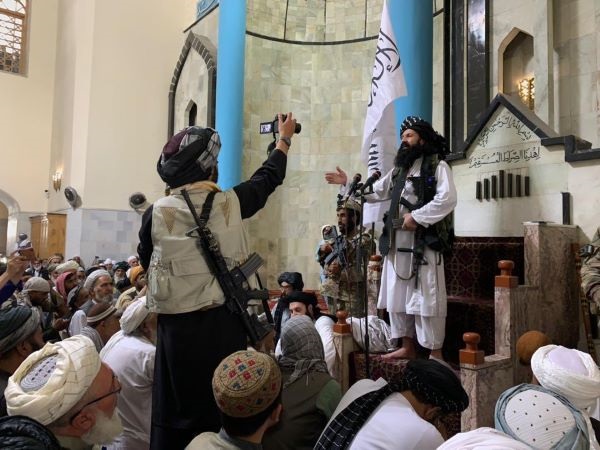
Team News Riveting
Senior members of the Haqqani Network had been assigned to control the security system in the Afghan capital, Kabul.
The network has close ties with foreign jihadist groups including a long-standing association with al-Qaida. Western intelligence officials had expressed concern and said the assignment was alarming and undercuts Taliban promises to tread a more moderate path than the movement did when it ruled the country from 1996 to 2001.
It also raised the prospect of al-Qaida return to Afghanistan, they fear, which would also break promises made by Taliban leaders during diplomatic talks in Qatar with U.S. officials last year, The Taliban leaders had assured that it would not allow the country to become a safe haven again for foreign jihadists.
On Thursday, Abdullah Abdullah, chairman of Afghanistan’s National Reconciliation Council, a body of notables and elders involved in the Qatar talks, met with Khalil al-Rahman Haqqani and his entourage in Kabul. Abdullah later indicated publicly that Khalil al-Rahman Haqqani would be overseeing security in the Afghan capital and had provided assurances that he would “work hard to provide the right security for the citizens of Kabul.”
The network’s leader, Sirajuddin Haqqani, is also one of the Taliban’s deputy leaders and is the nephew of Khalil al-Rahman Haqqani, the man now charged with overseeing security in the Afghan capital.
The U.S. Department of the Treasury designated Khalil al-Rahman Haqqani a global terrorist in February 2011, offering a $5 million reward for information leading to his capture. He’s also included on the United Nations terrorist list.
The meeting between Abdullah and Khalil al-Rahman Haqqani came hours before the Taliban declared the formation of an Islamic Emirate of Afghanistan.
The Haqqani family hails from southeastern Afghanistan bordering with Pakistan. The network has been accused — or claimed responsibility — for some of the deadliest attacks in Afghanistan, including the 2008 assault on the five-star Serena Hotel in Kabul, the 2012 attack involving a dozen Haqqani fighters wearing suicide vests on a U.S. base in Khost, and the 2017 truck bombing near the German Embassy in Kabul that left 96 people dead. The network is also thought by Western intelligence officials to have been behind the 2008 abduction of American David Rohde, a New York Times reporter who managed to escape eight months into his captivity.
During the uprising against occupying Russian forces in the 1980s, the Haqqani group was the first of the anti-Soviet insurgent groups to welcome foreign Muslim fighters. They included Osama bin Laden, who was trained in a Haqqani-run camp. When bin Laden formed al-Qaida in the 1990s, the two groups formed an association.
The Haqqani Network and al-Qaida ran joint training camps in Pakistan’s North Waziristan region after the U.S. invasion, and it helped Bin Laden to escape Afghanistan when American forces were grilled him in 2001.



